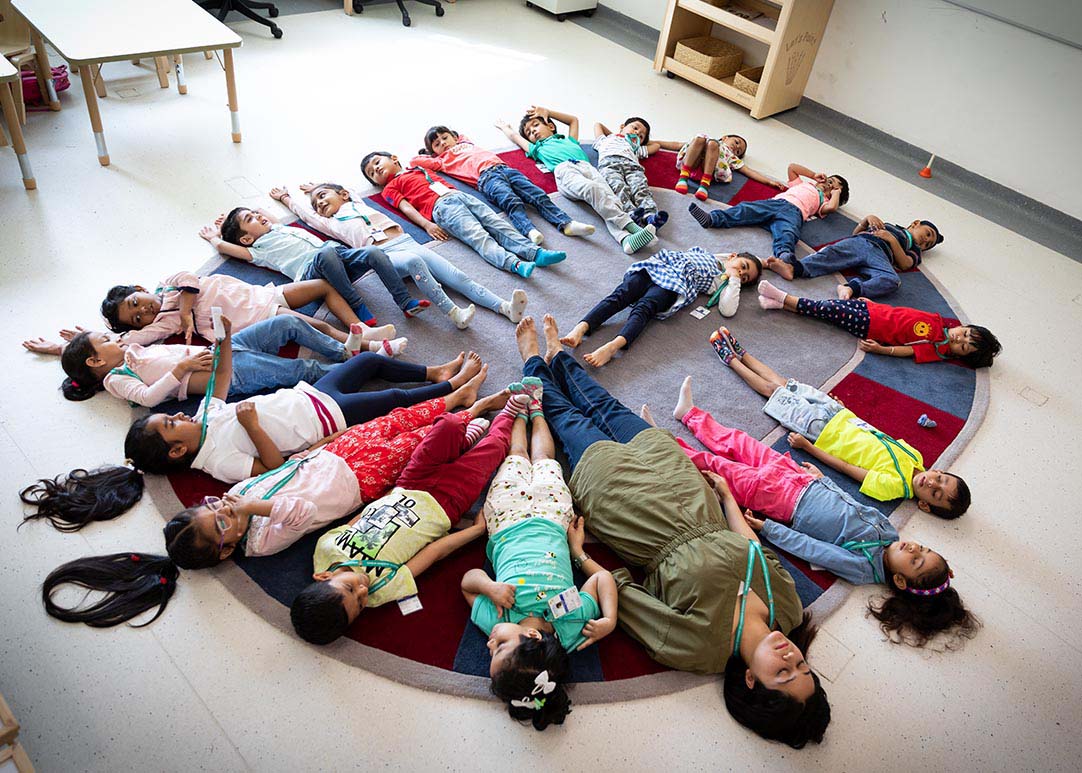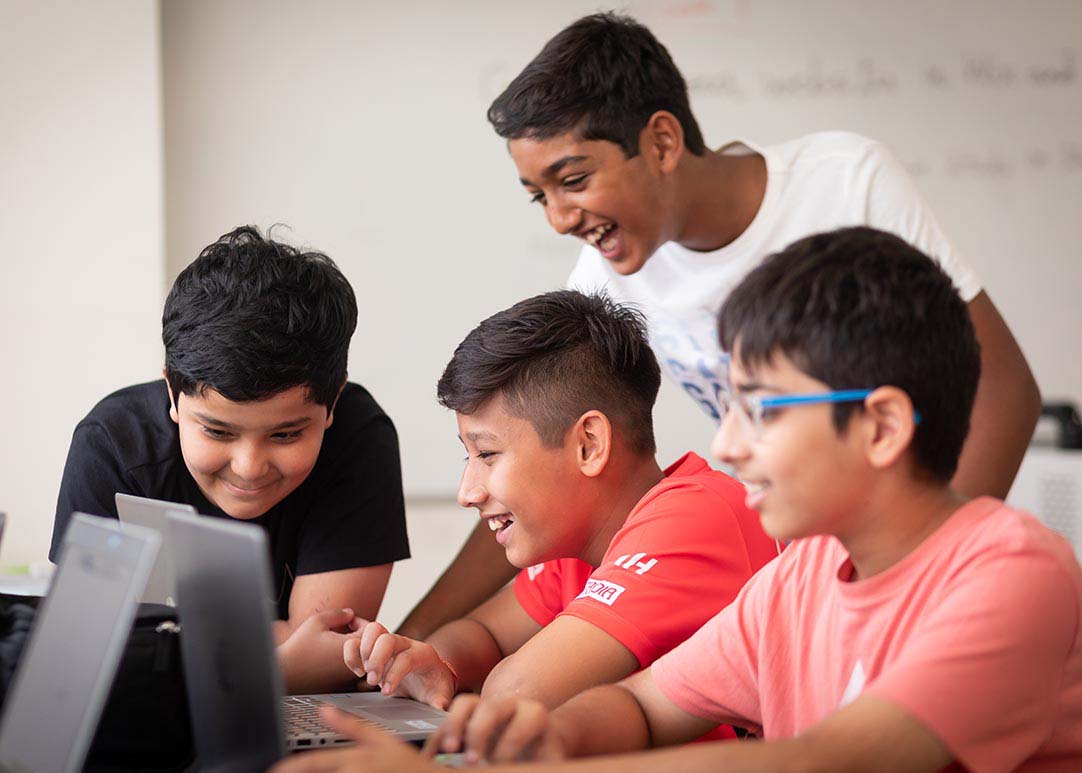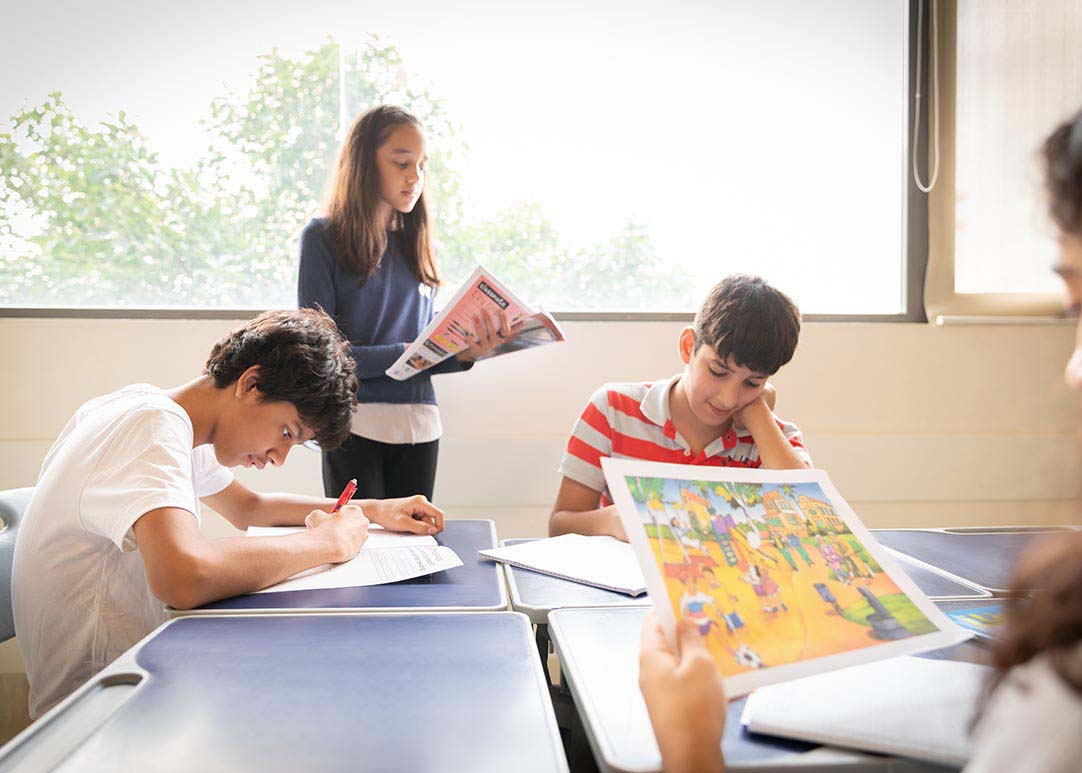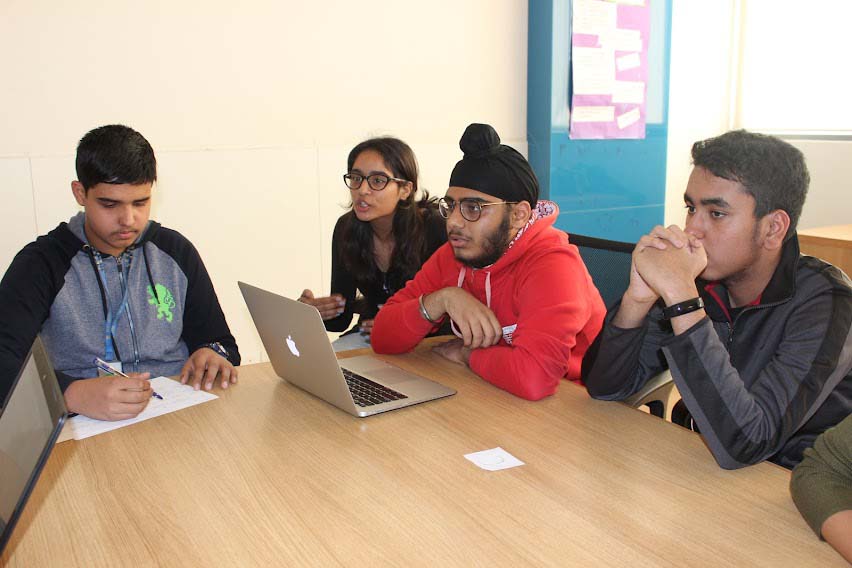The core of the curriculum in HIXS is the four vertical strands that every HIXS graduate is expected to master: social and emotional learning; design thinking and maker engineering; research focused reading and writing; and citizenship. These mastery strands are the anchor curriculum to achieve the HIXS graduate profile.
Dedicated Centres of Excellence (COEs) have been established to promote these strands through specialist research on curriculum standards, design of performance tasks and classroom connect with real life projects, experts and global partners as well as professional development workshops for educators. Students experience these COEs through specialised modules or projects integrated into their everyday curriculum.

The Human FrameworkTM Institute is aimed at nurturing joyful, healthy, resilient, and socially responsible individuals. We believe in instilling in children the ability to question and craft their identities, embrace complexity, navigate conflict constructively, honour emotional wellness in themselves and others, and interact with those who are different from themselves. This is in essence our view of social emotional learning.
The framework focuses on cultivating four aspects of the self:
These key components focus our initiatives to actualize our vision and construct standards, learning objectives, and rubrics for assessment so that we can rigorously track each child’s development.
The aim is to help students understand their own essence and motivations, develop healthy relationships with themselves and others around them, understand the purpose and meaning of life, and discover the contexts that shape them.
The goal of the Centre for Design Thinking and Entrepreneurship is to integrate maker-centred learning and design thinking as a pedagogical best practice at HIXS. The vision is to enable students to be product and solution builders using the design thinking framework. Its foundation goal is to make students creators rather than consumers. The pedagogy is based on three core guiding questions, around which student learning is structured:
The COE works with educators to integrate design thinking into their curriculum design. It also facilitates workshops, modules and bootcamps on designing thinking and maker engineering.


Almost all schools view reading and writing as a generic skill limited to English as one of the subjects. HIXS views reading and writing as a group of cascading skills and is not limited to English. The capacity to read complex academic and literary pieces and write complex pieces for varying audiences is a critical 21st century skill that cannot be left to a 45 minute English period.
This COE specializes in deploying evidence-based instructional strategies, granular assessments and best practices so that our students benefit from a differentiated and personalized literacy experience that caters to each student’s unique learning profile. These strategies, wrapped over the IB and Cambridge curriculums, are cascaded sequentially to form a seamless skill building curriculum from Nursery to grade 12.
In the early years, students receive instruction in reading, writing, speaking and listening based on the internationally acclaimed programme developed by Lucy Caulkins’ Reading and Writing Project. The framework develops students’ self-directed learning skills to be reflective and proficient readers and writers, and also to instill a love of reading and a passion for writing and uses tools such as word study (phonics), guided reading, independent reading, read alouds, shared reading, and writers’ workshop to achieve learning outcomes.
In later years, students are equipped with a toolkit of strategies for reading complex and varied-text. We implement the Reading and Writing Workshop Units of Study by Lucy Caulkins. The format enables teachers to observe, listen, assess, support and enrich each student based on her/his unique learning profile. Students undergo extended study of works of fiction, writings on social issues, research papers, and contemporary classics and also engage in flexible small group discussions.
The Heritage Centre for Active Citizenship promotes the core values of civic governance, community participation and representation. It is an endeavour to empower the present generation as well as to pass on the torch of active and responsible citizenship to each succeeding generation by imparting the language of citizenship in the way we learn, discuss, debate, advocate and act on local, national and global issues. This COE connects educators with real life projects to curate their learning expeditions/projects. It aims to build student capacity – attitudes, skills, knowledge and frameworks of action and advocacy – essential to become engaged, active and informed citizens. Focus skills are:

 Message us
Message us
 TOP
TOP